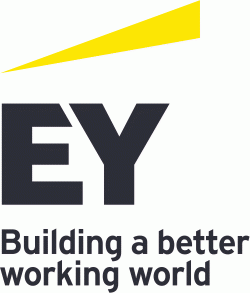Now that lockdown measures are beginning to ease and the prospect of meeting up with friends and family in a restaurant or having a drink in a pub has arrived, businesses are planning for what a return to the workplace will look like.
But as lockdown measures gradually begin to ease and we all start to look towards the future, businesses are and have been continually pondering and planning for what a return to the workplace will look like.
As financial pressures mount, one of the burning questions for many business seems to be ‘well, we’ve managed to keep people working from home successfully during lockdown, do I really need that shiny new large office space in the city centre which takes a big chunk of my balance sheet?’ This is a question with a different answer depending hugely on the sector the business operates in, not least in the science and technology sector where working from home is near on impossible. Could it be that sci-tech businesses fill the gap in the potential downturn in demand for working space from traditional office based businesses?
Nobody could have escaped the rapid advent of technology in recent years and how the sector is fast becoming a major part of the UK economy. In the last few months, we can only be eternally grateful for the existence of technology during lockdown, enabling work to continue for many businesses and social relationships to be maintained and cultivated. Even our previously labelled, self-styled ‘technology dinosaurs’ of parents and grandparents have to admit that they couldn’t have managed without technology and are now up there as Zoom experts!
Indeed in the Knight Frank’s inaugural ‘Future of our cities’ report, it reported a domination by the tech sector in the take up of office space in the first three quarters of 2019 of 23% of the market with the continuing growth of regional hot spots, representing growth in the sector in the UK’s regional cities from 15 to 23% in 4 years.
With growth in the industry still predicted to rise post Covid-19 and hopefully the sector playing a pivotal role in trying to restore the UK economy, could it be that these sci-tech companies drive the need for office space? After all, laboratory environments can’t really be recreated in the home – pure physical space for one being one of a large number of factors driving external premises need. The phrase ‘less is more’ can’t really be said to apply to laboratory or scientific research type premises. Space is key to these businesses in not only housing equipment, but also as the demand for larger working spaces could become even greater with social distancing measures set to stay with us for the foreseeable future. For sci-tech businesses, it isn’t just a case of limiting the number of workers on site and employing shift work type patterns (as has been suggested in other sectors to limit employee contact). Many laboratory operations need a minimum number of staff on the floor to actually operate machinery and undertake testing and analysis, meaning that greater space requirements may be pivotal to those businesses.
Research by Bidwells and published in their recent report ‘Oxford-Cambridge Arc Beyond the Covid-19 Crisis’, has revealed that up to 20 million sq ft of new lab and office space will be required in the Arc within the next two decades to keep pace with soaring demand, twice the volume of the previous 20 years. In 2018, the number of people working in the sci-tech sector across the Oxford-Cambridge Arc rose by 6.1% with an increase of 27% in Cambridge.
The ongoing Covid-19 epidemic has really highlighted and brought to the fore the importance of life science and health research and development companies. The NHS, now firmly cemented as a rightly deserved ‘national hero’ will hopefully get the recognition and investment it deserves, which will likely cause an acceleration in the convergence of technology and life sciences. Hopefully as these smart businesses return to working spaces, technology will develop around the buildings too – we have already seen the suggestion of greater development of ‘smart buildings’ such as in Silicon Valley with the proposed introduction of entry barriers to check temperature on arrival and the use of health checklists to minimise potential exposure to the virus for employees.
Whilst it seems at the moment that everything is unclear with no fixed or clear predictions of what a post lockdown world will look like, one thing is for certain – technology is going nowhere and will shape the very existence of our society to come.
Vincenzo Maggio
Partner, Real Estate at Mills & Reeve
https://www.mills-reeve.com/people/vincenzo-maggio

























